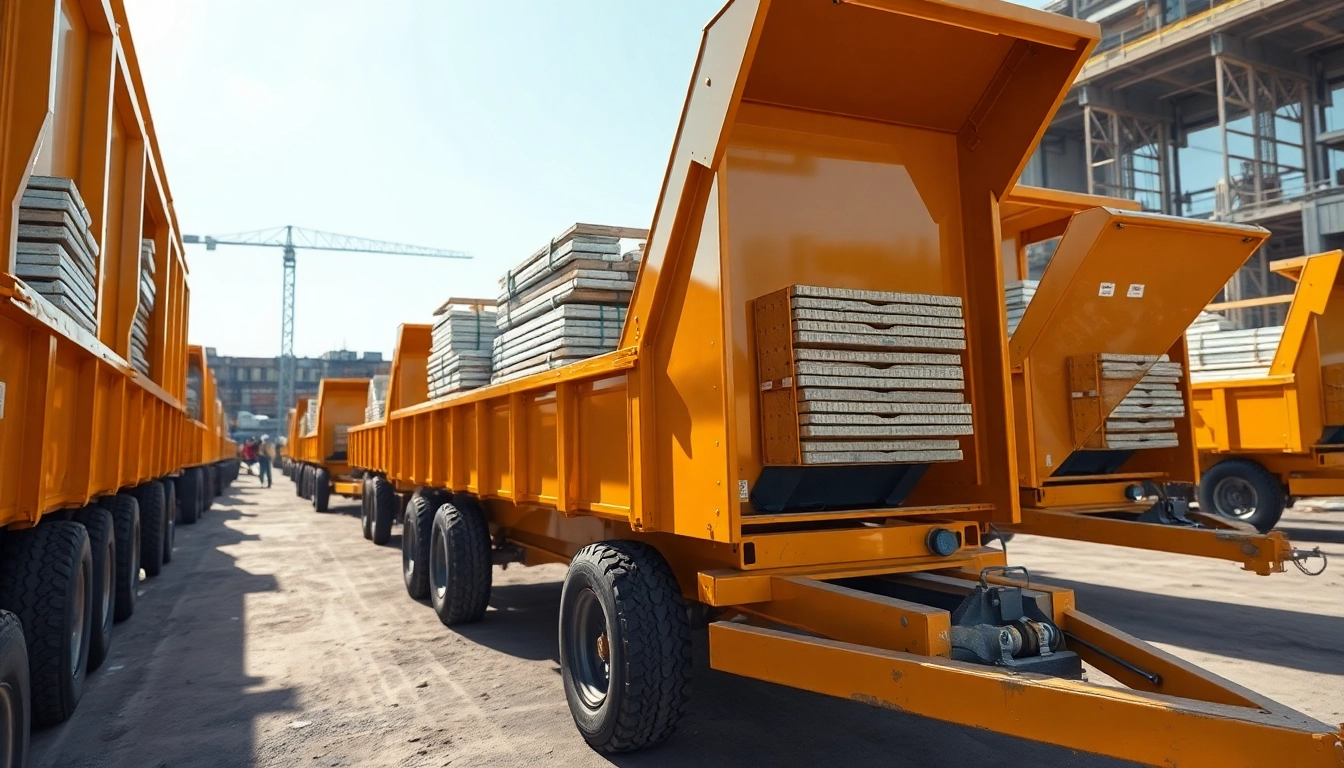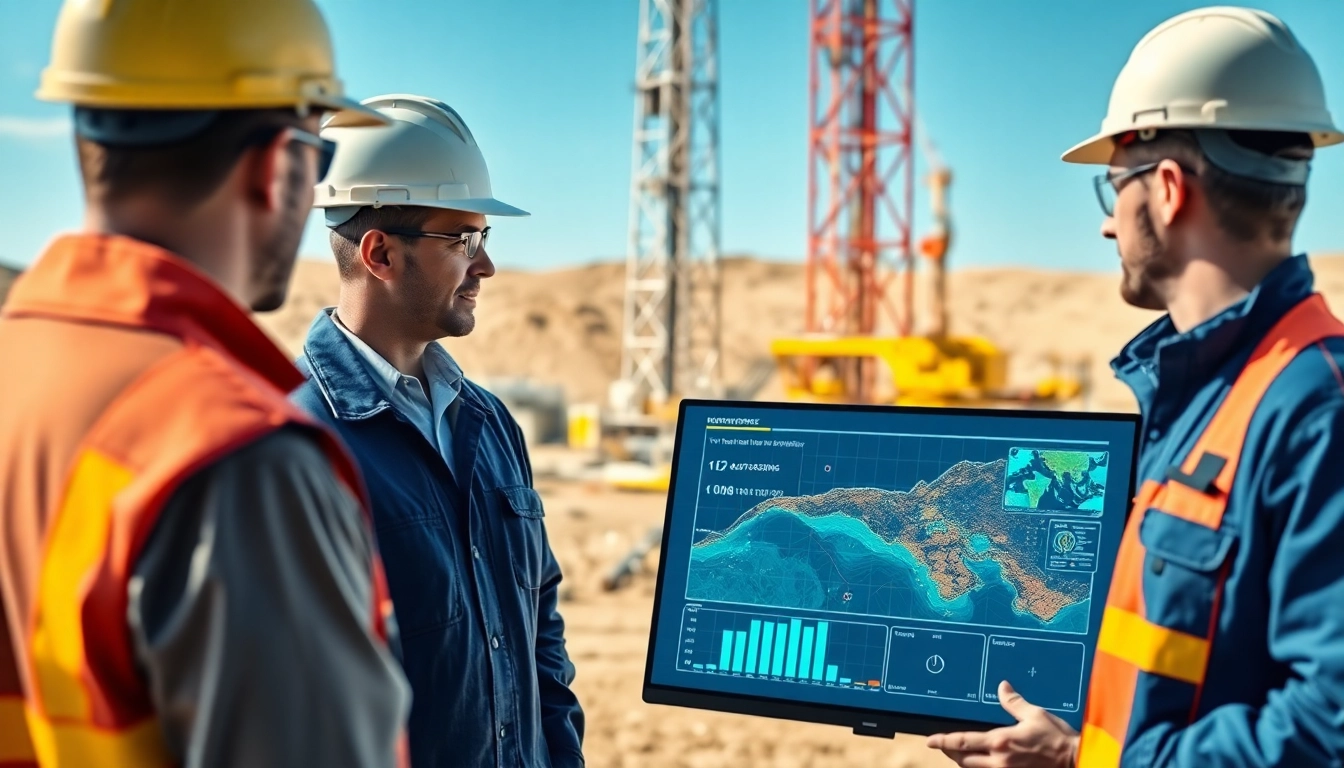Understanding Dumpster Trailers for Sale
What is a Dumpster Trailer?
A dumpster trailer is a type of trailer designed for transporting various loads, including debris, junk, and construction materials. Unlike standard flatbed trailers, dumpster trailers are specifically built to accommodate waste management and construction cleanup tasks. They often feature a built-in dump mechanism, allowing users to easily unload the contents by tilting the trailer bed. This functionality makes dumpster trailers particularly valuable for contractors, landscapers, and anyone needing efficient waste disposal solutions.
Available in various sizes and configurations, these trailers fulfill different hauling needs, whether it’s for residential projects or extensive commercial applications. If you’re looking for options, you can explore dumpster trailers for sale to find the perfect fit for your project.
Key Features to Consider
When evaluating dumpster trailers, several key features demand attention. The following are critical considerations:
- Capacity: Depending on the type of project, you may need a trailer with specific weight and volume capacity. Common sizes range from 6 to 20 cubic yards.
- Dump Mechanism: Check if the trailer has a hydraulic dump system for easy unloading, which is vital for productivity.
- Build Quality: A robust construction using durable materials will ensure long-term usage, making it imperative to assess the specifications.
- Axle Configuration: The number of axles can impact towing stability and weight distribution. Higher load capacities typically require more axles.
- Tire Size: Adequate tire size is critical for maintaining traction with heavier loads and ensuring safe traveling on various terrains.
Common Uses for Dumpster Trailers
Dumpster trailers serve versatile roles in numerous applications. Below are some common uses:
- Construction Sites: Ideal for hauling construction waste, debris, and discarded materials.
- Landscaping Projects: Frequent use for transporting soil, mulch, and other garden materials or waste.
- Home Renovations: Homeowners utilize dumpster trailers for disposing of old furniture, appliances, and renovation waste.
- Festival and Event Management: Event organizers manage waste disposal efficiently using these trailers at various venues.
- Residential Cleanouts: An effective solution for bulk waste removal during spring cleanouts or moving.
Types of Dumpster Trailers Available
Standard vs. Roll-Off Dumpster Trailers
There are two primary categories of dumpster trailers: standard and roll-off. Understanding the differences between these types can help in selecting the right one for your needs.
Standard dumpster trailers usually feature a traditional design with wheels and a dump bed, making them suitable for tow-behind hauling. These are accessible for smaller businesses and individuals who need regular waste disposal solutions.
Roll-off dumpster trailers, on the other hand, are specially designed for larger debris loads. They allow for quick emptying and are often associated with rental companies that provide clean-up services for larger projects. Roll-offs can be transported by specialized trucks and are beneficial for long-term projects where frequent waste removal is necessary.
Light, Medium, and Heavy-Duty Options
Dumpster trailers come in various grades depending on their intended use:
- Light-Duty: Typically have lower weight capacities and are ideal for personal or small-scale business use.
- Medium-Duty: Suitable for commercial applications, they can handle mid-range loads commonly associated with renovations or landscaping.
- Heavy-Duty: Designed to handle substantial weight and volume, these are perfect for large construction projects and specialized waste management in industrial settings.
Customizable Features for Your Needs
Many manufacturers offer customizable options to cater to specific needs. Customizations can include:
- Additional Axles: For enhanced stability and load capacity.
- Specialty Coatings: To protect against corrosion and extend the life of the trailer.
- Integrated Tool Boxes: For storing tools or additional equipment needed at job sites.
- Color Choices: To align with branding or personal preferences.
Buying a Dumpster Trailer: Factors to Evaluate
Budget Considerations for Dumpster Trailers for Sale
Establishing a budget is the first step in purchasing a dumpster trailer. Prices can vary widely based on size, features, and brand reputation. It’s beneficial to begin by determining how much you’re willing to spend while also considering the financial benefits of your investment. Often, spending slightly more upfront for a high-quality trailer can save costs in maintenance and replacement down the line.
Moreover, analyzing total ownership costs, including insurance, maintenance, and potential repairs, is crucial when setting your budget.
Assessing Size and Capacity Requirements
Choosing the right size and capacity is pivotal. Consider the following factors:
- Project Scope: Estimate the average size of debris or materials you will be hauling.
- Frequency of Use: Higher frequency may justify purchasing a larger capacity trailer to minimize trips.
- Towing Vehicle: Ensure your vehicle can handle the weight and size of the trailer you intend to purchase.
New vs. Used Dumpster Trailers
When buying a dumpster trailer, one of the most significant decisions involves whether to purchase new or used equipment. Here are some insights:
- New Trailers: Offer the latest features and a manufacturer’s warranty, ensuring peace of mind with performance and reliability.
- Used Trailers: Can significantly reduce initial investment costs. However, it’s essential to thoroughly inspect for wear and tear, especially on critical parts such as the frame and axles.
Ultimately, your choice should stem from your operational needs, budget constraints, and how much risk you are willing to accept regarding potential repairs.
Maintenance and Care for Your Dumpster Trailer
Regular Maintenance Tips for Longevity
Maintenance is essential to ensure that your dumpster trailer operates efficiently and lasts for years. Consider these proactive maintenance tips:
- Routine Inspections: Conduct regular checks on both external and internal components, including the tires, brakes, and the dump mechanism.
- Lubrication: Regularly lubricate moving parts to minimize friction and wear.
- Cleaning: Clean the trailer after each use to remove any debris that could cause long-term corrosion or build-up.
Common Issues and Troubleshooting
Despite regular maintenance, issues may still arise. Here are some common problems and potential solutions:
- Brake Failure: Often linked to wear; ensure that your brake pads and lines are routinely inspected.
- Leaking Hydraulic Systems: A sign of failure in hydraulic seals; check for leaks regularly and address them immediately.
- Uneven Tire Wear: Indicates misalignment; adjust and balance tires as needed to ensure proper wear and safety.
Upgrades and Modifications for Performance
Over time, you may find that certain upgrades or modifications can enhance the performance of your dumpster trailer:
- Upgrade Axles: For improved stability and weight capacity.
- Add Side Extensions: To allow for additional load capacity by extending the trailer height.
- Install a New Dump Mechanism: Replacing old hydraulic systems with newer technology for better reliability and efficiency.
Leasing vs. Buying: What’s Best for You?
Advantages of Leasing Dumpster Trailers
Leasing can be a beneficial alternative for many businesses or individuals who may not want to commit to a purchase:
- Lower Upfront Costs: Leasing typically requires no down payment, enabling easier cash flow management.
- Flexibility: Allows users to adapt quickly to project requirements without long-term commitments.
- Access to Latest Models: Leasing enables users to access modern equipment without the burden of depreciation.
Pros of Owning Your Trailer
Despite the perks of leasing, ownership comes with its advantages:
- No Mileage Limitations: Unlike leased trailers, owned trailers can be used as much as necessary without incurring additional costs.
- Customization Options: Ownership allows for permanent modifications to suit your specific needs.
- Long-Term Savings: Owning can lead to reduced long-term costs when usage is consistent and regular.
Financial Implications of Each Option
In conclusion, both leasing and buying come with unique financial implications. It’s essential to analyze your financial forecasts, typical operational costs, and project volumes to determine which option is most suitable for your circumstances. Consider consulting accounting professionals if needed to better interpret potential returns on investment.



